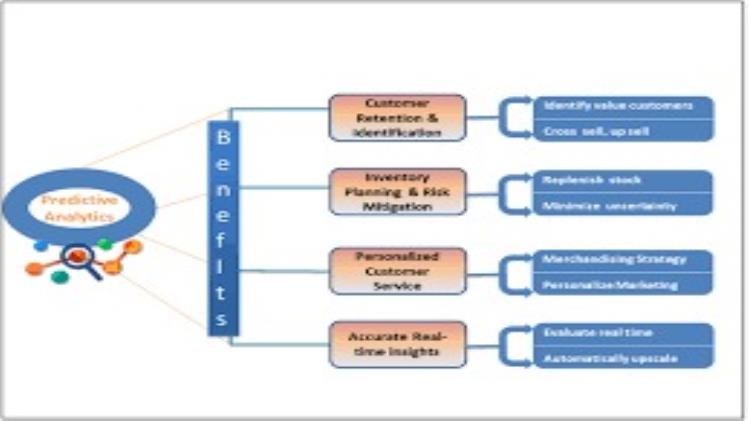Business Applications of Predictive Analytics in Retail

Predictive analytics has several applications in retail. This data can be generated by the physical store’s RFID tags or by video surveillance. Predictive analytics take advantage of this data to anticipate what customers are likely to do. Depending on the insight generated, the response to the customer’s demand may include a price cut for a limited period of time or moving cereal boxes to an endcap. Using this data, retailers can maximize sales by responding to their customers’ needs.
Business applications
There are numerous business applications of predictive analytics. For example, predictive models can identify high-risk customer segments and target retention offers accordingly. Predictive models can also prevent revenue losses associated with discounting high-risk customers. But what are the most common business applications of predictive analytics? Let’s explore them one by one. Here’s a look at some of the most common examples. You’ll be surprised how many business predictive analytics can help your company improve.
Data science for business
Using Data Science in your business is a powerful way to improve operational efficiency. For instance, predictive analytics can help you determine optimal routes for a delivery service, which could save logistics companies more than 39 million gallons of fuel and 100 million miles in conveyance. Companies like Spotify use Data Science to curate personalized music playlists, while Netflix uses it to recommend movies to watch. Both of these technologies are growing in popularity, and the future of business analytics lies in these fields.
Regression models
Regression models in predictive analytics allow you to analyze data by identifying patterns in it. They are commonly used by companies to determine what will happen in the future based on certain inputs. These models can be complex and include multiple independent variables. The output of the regression analysis can provide important insights for the business. The following are some examples of predictive analytics using regression models. Listed below are a few examples. Read on to learn more about these models.
Please visit for more information: Jio Rockers Kannada
Artificial intelligence for predictive analytics
Applied in a number of industries, artificial intelligence for predictive analytics can increase the accuracy of forecasts by identifying outlying factors. For instance, outlying factors like extreme weather conditions can affect the accuracy of data – such as weather forecasts for hurricanes or the amount of snow a particular area has. AI can also be applied to improve shipping forecasts by predicting the length of time before a shipment needs to be made.
IoT data
Using IoT data to improve maintenance is a powerful way to cut down on costs. Companies that collect data on the operation of their machines can utilize predictive analytics to predict the likelihood of a sensor failure. For example, predictive maintenance can help a company determine when to replace a worn-out sensor, reducing inventory costs. Similarly, IoT data can be used to track customers’ usage habits and predict when it will be necessary to restock.
Health care
Many health plans have been implementing health care predictive analytics for years. These models use claims data and diagnostic information to predict patient outcomes. In recent years, health payers have also begun leveraging consumer data obtained from credit reporting agencies, which contain demographic and financial information such as household size and income. Increasingly, these analytics are also being used to match physicians and patients. However, health-care predictive analytics is not without risks. Here are some of the concerns related to their use.
Retail
In today’s crowded market, bringing back disengaged customers is difficult. Retail predictive analytics can help retailers understand their customer base and identify the types of customers who are at risk of leaving the store or making the first purchase. These analytics can also help retailers develop targeted marketing campaigns and determine the lifetime value of each customer. By determining the type of customers they have, they can take corrective action to prevent churn and provide offers that will retain customers. Please Visit For All Details Anewstories

